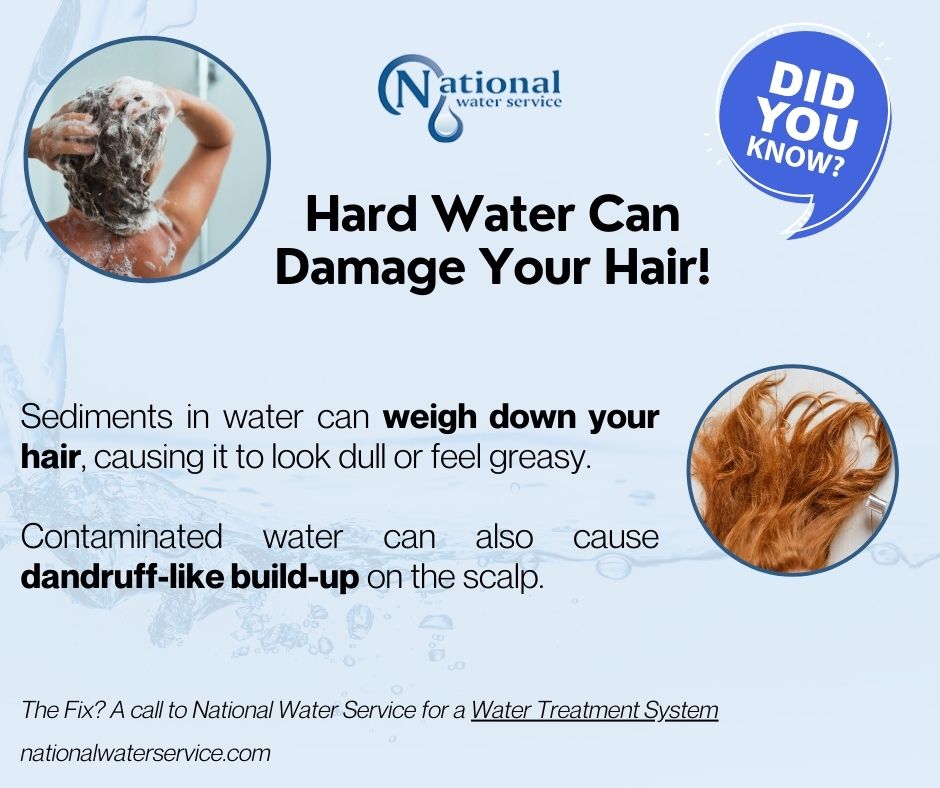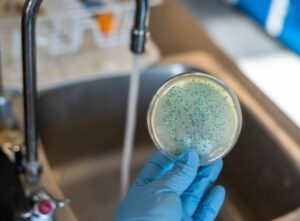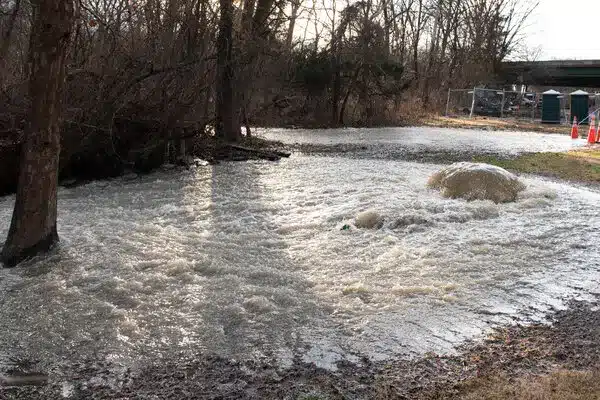There is no doubt that having clean drinking water is essential for survival. But the kind of world we live in, every element is contaminated and polluted by industrial waste and chemicals.
If your home relies on a private well, installing a water filter from a well is one of the most effective ways to protect your drinking water from bacteria, heavy metals, excess minerals, and other contaminants that are not treated by municipal systems.
That’s why filtering your well water is important for it to be safe for human consumption. And this is not a debate. Still, if you are wondering whether or not you should filter your well water, we hope that this article will eliminate the confusion.
Looking for a professional setup? Explore our Well Water Filtration Systems for expert installation and local service.

Do You Need a Water Filter From A Well?
Homes that rely on private wells do not receive treated or regulated water like municipal systems do. Because of this, well water can contain sediment, bacteria, metals, sulfur, and excess minerals without warning. Using a water filter from a well helps protect your health, plumbing, and appliances while improving the taste and safety of your drinking water.
Benefits of Well Water (When Properly Filtered)
Well water contains naturally occurring minerals, such as calcium, zinc, magnesium, and potassium, which have a number of favorable properties. It is safe to drink, has fewer contaminants than tap water. These minerals are good for your body as they can help improve digestion, prevent health problems, and improve skin health.
Additionally, well water is a natural, sustainable source of water. It is generally free of contaminants, unlike city water sourced from municipal treatment facilities because it is pumped directly from the ground using water booster pumps and is naturally filtered by rock formations.
Because well water isn’t processed, it is also free of certain chemicals like chlorine that city water contains for water treatment – making it ideal for your body.
The Importance of Filtering Well Water
Using a water filter from a well helps control mineral levels, remove harmful metals, eliminate bacteria, and improve the overall safety of your drinking water. Installing a water filter from a well helps protect your home from contaminants commonly found in untreated groundwater.
Get Rid of Excess Minerals

Naturally occurring minerals are good for your health in small doses. Too much, however, can be bad.
Well water can have higher levels of minerals than municipal water, due to pollution, industrial wastes, and countless other reasons. If you are sensitive to these minerals, drinking too much well water can lead to gastrointestinal issues, such as constipation or diarrhea.
Calcium and magnesium can also increase blood clotting, which can affect people with heart disease or those who are using blood-thinning medication. Potassium and sodium can also affect blood pressure. Therefore, people with high blood pressure should drink only filtered well water.
If you are one of the 85% of US households that receive hard water, you already know the ill effects of excess minerals in your water. From hair loss to damaged skin, there is nothing that hard water can’t do. So, imagine how adversely long-term consumption of water with excess minerals can impact you.
Reduce metal consumption
Because well water can contain excess lead, it is safe to drink only if it has been filtered using certified filtration systems.
Untreated well water may contain more than 15 parts per billion of lead, which is a hazardous amount for public health, according to the Environmental Protection Agency. Frequent exposure to these harmful metals can also cause life-altering health issues, such as organ failure.
But well water filtration can help you get rid of the lead, mercury, and even the debris carried through corroded pipes – and make your water safe for use and consumption.
Avoid using disease-induced water

Water consumption can be compared to air. If it is of high quality, it can improve your life or can cause a number of illnesses if bad. Therefore, public water suppliers are required to test the water frequently to ensure it meets federal standards. But wells don’t have that luxury.
Well water may contain Giardia, Legionella, Shigella, Campylobacter, Salmonella, and Cryptosporidium, which have a history of causing diseases like Hepatitis A and Norovirus in the United States.
Fortunately, well pump filtration systems help people avoid illnesses caused by water every day. They make water safe for consumption, so you can spend your money on the things you actually like, rather than on hospital bills.
Avoid fungal or bacterial water
The Environmental Protection Agency states that well water does not contain as much bacteria as city water. What the EPA doesn’t tell you is that some well water can contain more bacteria than municipal water if you aren’t sure about its source and if it isn’t checked or filtered before a water pressure tank for a well is allowed to pump it into your faucets.
And it gets worse!
The bacteria in your well water can multiply, similar to the way bacteria breed in meat. Since well water absorbs bacteria from underground, drinking water filled with amoeba, algae, and parasites is the perfect recipe for a perpetually upset stomach and a plethora of diseases.
The water treatment for well water with high bacteria levels use systems such as a UV Disinfecting system which is attached to you home water system.
Eliminate smell, taste, and color

Safe water is odorless, tasteless, and colorless. If your water has all of these, here’s why.
- The odors come from compounds like benzene. Depending on where your well is located, it might contain other compounds, like volatile organic compounds, including acetone, toluene, xylene, ethylbenzene, and trichloroethylene.
- The taste is more commonly associated with iron and sulfur. Iron and sulfur are naturally occurring compounds, but they can become a problem when they oxidize. Because when they oxidize, they become very toxic.
- Sulfur smells and tastes much like rotten eggs. And the bad taste is a common problem, especially in well water, because sulfur can be found in decaying organic matter, such as manure, decaying leaves, and animal waste.
- The tint comes from iron. Iron tends to leave the water a rusty color, and in well water, it can leave the water a brownish-black color.
Since these contaminants can only be removed through water filtration, it is important that you filter your well water before use.
Prevent health hazards caused due to hard water
Water is water, right? Well, yes, but the minerals that dissolve in it can cause problems.
High mineral levels cause water to turn hard and have an unpleasant taste, smell, and appearance. Hard water also causes scale buildup in fixtures, pipes, and appliances that come into contact with it. The scale buildup reduces water flow and can increase the operating costs of your well pressure tank and shorten the life of appliances.
Now, well water isn’t inherently hard. But it is very difficult to regulate its quality because it doesn’t come from dedicated reservoirs. So, if your well water isn’t checked and approved by your local authorities, you should get on the matter as soon as possible and install a filtration unit to ensure your safety.
Choosing the Right Water Filter for Well Water
While well water can be a valuable natural resource, it is not automatically safe to drink without proper filtration. Testing your well water helps identify bacteria, metals, hardness, or sulfur issues. With the right filtration system in place, you can protect your health, extend the life of your plumbing, and enjoy clean, great-tasting water every day.
More Information about best whole home water filtration systems here.
Frequently Asked Questions About Well Water Filtration
Do I really need a water filter for well water?
Yes. Unlike municipal water, well water is not treated or monitored by public utilities. A filtration system helps remove bacteria, heavy metals, excess minerals, and other contaminants that may be present in untreated well water.
What contaminants are commonly found in well water?
Well water may contain bacteria, viruses, iron, sulfur, nitrates, lead, sediment, and other naturally occurring or environmental contaminants. The exact contaminants depend on location, soil conditions, and nearby land use.
How do I know which water filter from a well I need?
The best way to choose a water filter from a well is to start with a professional well water test. Testing identifies specific contaminants so the filtration system can be tailored to your water quality needs.
How often should well water be tested?
The Environmental Protection Agency recommends testing well water at least once a year for bacteria, nitrates, and other common contaminants. Additional testing may be needed if you notice changes in taste, smell, or appearance.
Can filtered well water be safe to drink every day?
Yes. When properly tested and filtered, well water can be safe for daily drinking, cooking, and household use. Regular maintenance of your filtration system is essential to ensure continued water safety.

